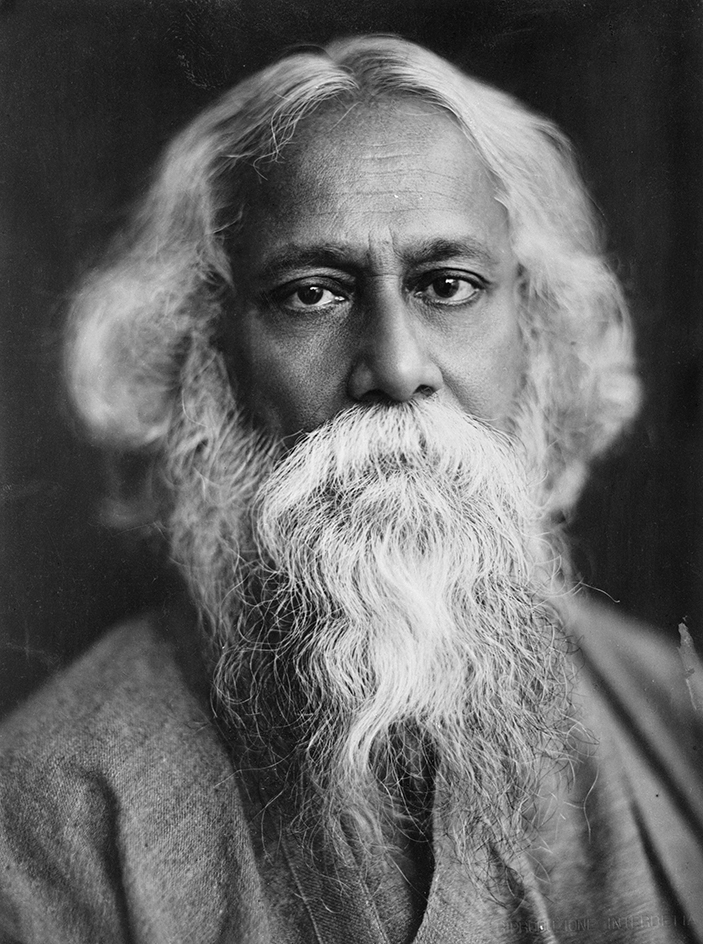Tagore, Rabindranath, << tuh GAWR, ruh BEEN druh `naht` >> (1861-1941), was one of the most influential cultural and political figures in the history of modern India. In 1913, Tagore won the Nobel Prize in literature, the first Asian writer to receive the award. Tagore produced a massive amount of literature in the Bengali language of India. Perhaps his best-known work is the poetry collection Gitanjali (1910). He also wrote plays, essays, novels, stories, and social commentary, along with founding a university. Tagore’s writings show his sympathy for India’s downtrodden, and he supported India’s independence movement from British colonial rule. Tagore was an internationalist in spirit, stressing the need for a dialogue between the world’s diverse cultures.

Tagore was born on May 7, 1861, in Calcutta (now Kolkata) and studied law in England. He was knighted in 1915 but returned the title in 1919 to protest British policies in India. Tagore died on Aug. 7, 1941.
See also “Heaven of Freedom“.
